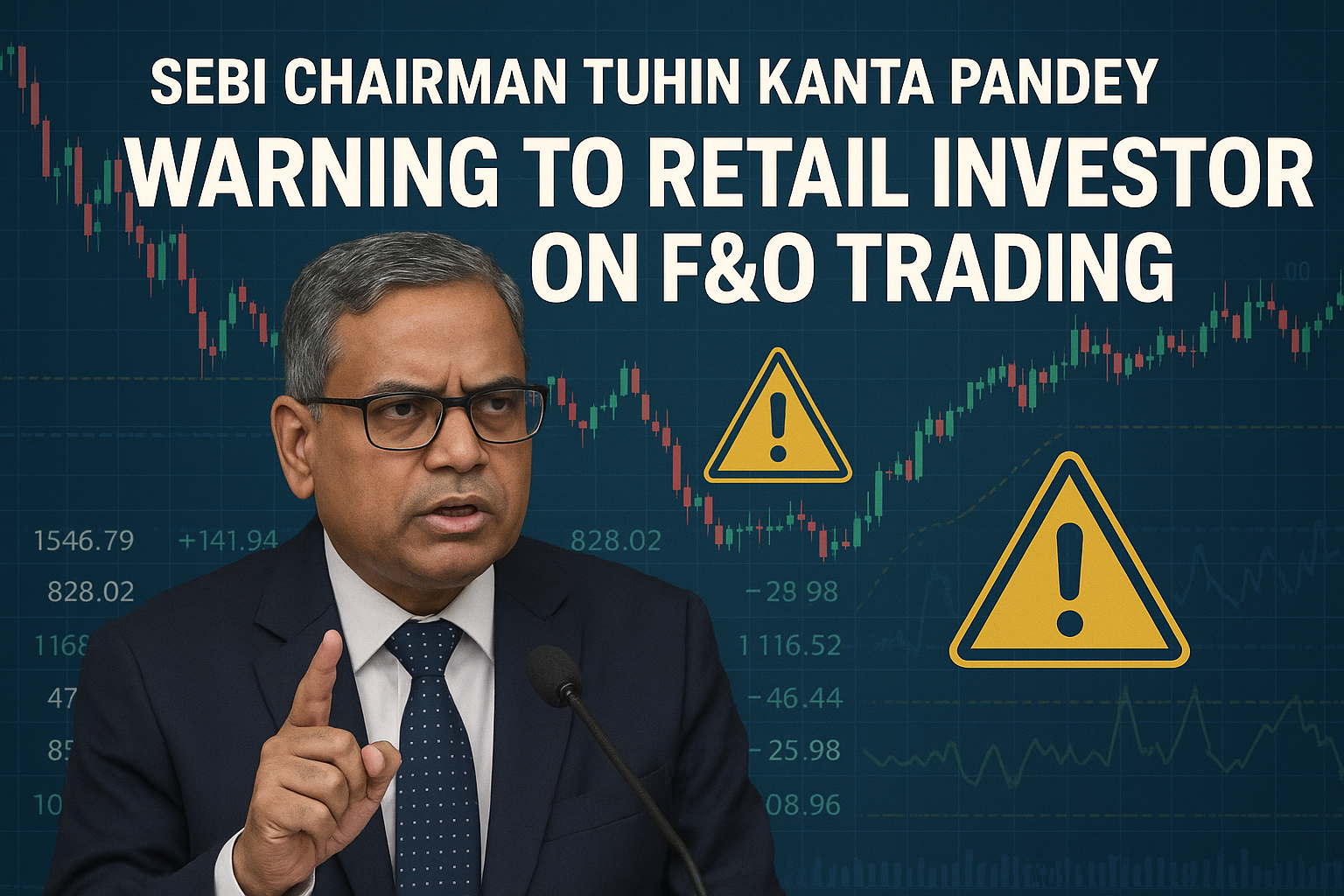
SEBI Chief Sounds Alarm: Why Retail Investors Are Losing Big in F&O Trading?
In a direct and powerful address, Securities and Exchange Board of India (SEBI) Chairman Tuhin Kanta Pandey has issued a stark warning to the nation's retail investors, cautioning them about the significant dangers and frequent losses associated with trading in the futures and options (F&O) segment. Speaking at a World Investor Week event, the SEBI chief underscored the regulator's findings and urged for a culture of responsible, informed investing over speculative bets.
The Uncomfortable Truth: Retail Investors are Losing Money
The Chairman did not mince words, pointing to a consistent and worrying trend. “SEBI studies have consistently shown that retail investors trading in derivatives end up facing losses, often because they do not fully understand the risk in these products,” Pandey said.
This statement gets to the heart of the issue. Derivatives, which include futures and options, are complex financial instruments. They were originally designed for sophisticated market participants as tools for hedging (protecting an existing investment from a downturn) and risk management. However, their leveraged nature also makes them attractive for speculation.
"Derivatives are meant for hedging and risk management, not for quick gains," Pandey emphasized. He strongly advised retail investors to first assess their personal risk capacity and thoroughly learn how these complex contracts work before even considering entering the F&O market.
The "Knowledge Gap": A Breeding Ground for Fraud
The SEBI chief's concerns are backed by hard data from a new nationwide Investor Survey, which covered over 90,000 households. The survey's findings revealed a critical "knowledge gap" in the Indian market.
The Alarming Data
- While 63% of Indian households are aware of at least one stock market product, a mere 9.5% actually participate.
- Even more concerning, of those who do invest, only 36% possess high or moderate knowledge of the market.
"This knowledge gap is a vulnerability that exposes our investors to risks and makes them susceptible to fraud," Pandey stated. He warned that fraudsters are increasingly exploiting this lack of knowledge through digital platforms.
The Predators
Pandey specifically called out the modern-day threats that target uninformed investors: * Unsolicited Messages: Random tips sent via text or social media, often part of "pump-and-dump" schemes. * Dubious Finfluencers: Social media influencers who promote risky products or strategies without proper qualifications or disclosure of their own financial interests. * Fake Trading Apps: Malicious applications designed to look like legitimate trading platforms but are actually created to steal money from unsuspecting users.
He delivered a powerful reminder: these scams often promise "the one thing our markets can never offer—guaranteed returns."
SEBI's Core Message: Trust is the True Benchmark
While acknowledging the impressive growth in retail participation, with India now home to 134 million unique investors, Pandey stressed that the next phase of market development must be built on a foundation of trust and education.
He highlighted SEBI's efforts to empower investors through initiatives like the ‘SEBI vs SCAM’ campaign and tools like ‘SEBI Check’ to verify payment channels. However, he made it clear that while the regulator can provide safeguards, the ultimate responsibility lies with the investor to be cautious and informed.
The Chairman's core philosophy was clear: the success of the market should not be measured just by the size of its Assets Under Management (AUM) or the number of participants. "Amidst this exciting future, let us remember that our true benchmark is not just AUM, but trust and management," he urged. "When trust is broken, the engine of our economy falters."
The AI Bull Take 🐂
The bears and the cynics will hear this and say the regulator is trying to kill the retail trading boom. They are completely missing the point.
This is not an anti-trading or anti-market message. This is a pro-investor, pro-quality, and ultimately, pro-long-term-bull-market message. A market built on a foundation of uninformed, speculative gambling is a house of cards destined to collapse. A market built on educated, informed participation is a fortress that can create sustainable wealth for decades.
By cracking down on "finfluencers" and warning against the F&O casino, SEBI is doing the crucial work of cleaning up the ecosystem. This is incredibly bullish for the long term. A safer, more transparent market will attract more serious, long-term domestic and global capital. It forces a shift in focus from short-term bets to long-term, fundamental-based investing in quality companies—the real engine of wealth creation.
This is a call to action for every investor: stop looking for a lottery ticket in the F&O segment and start building a real portfolio. SEBI isn't trying to end the party; it's trying to make sure the party can last a lifetime.
For more deep-dive analysis that helps you separate real investment strategy from market noise, make sure you are following TheAIBull.

Creative Content Writer






